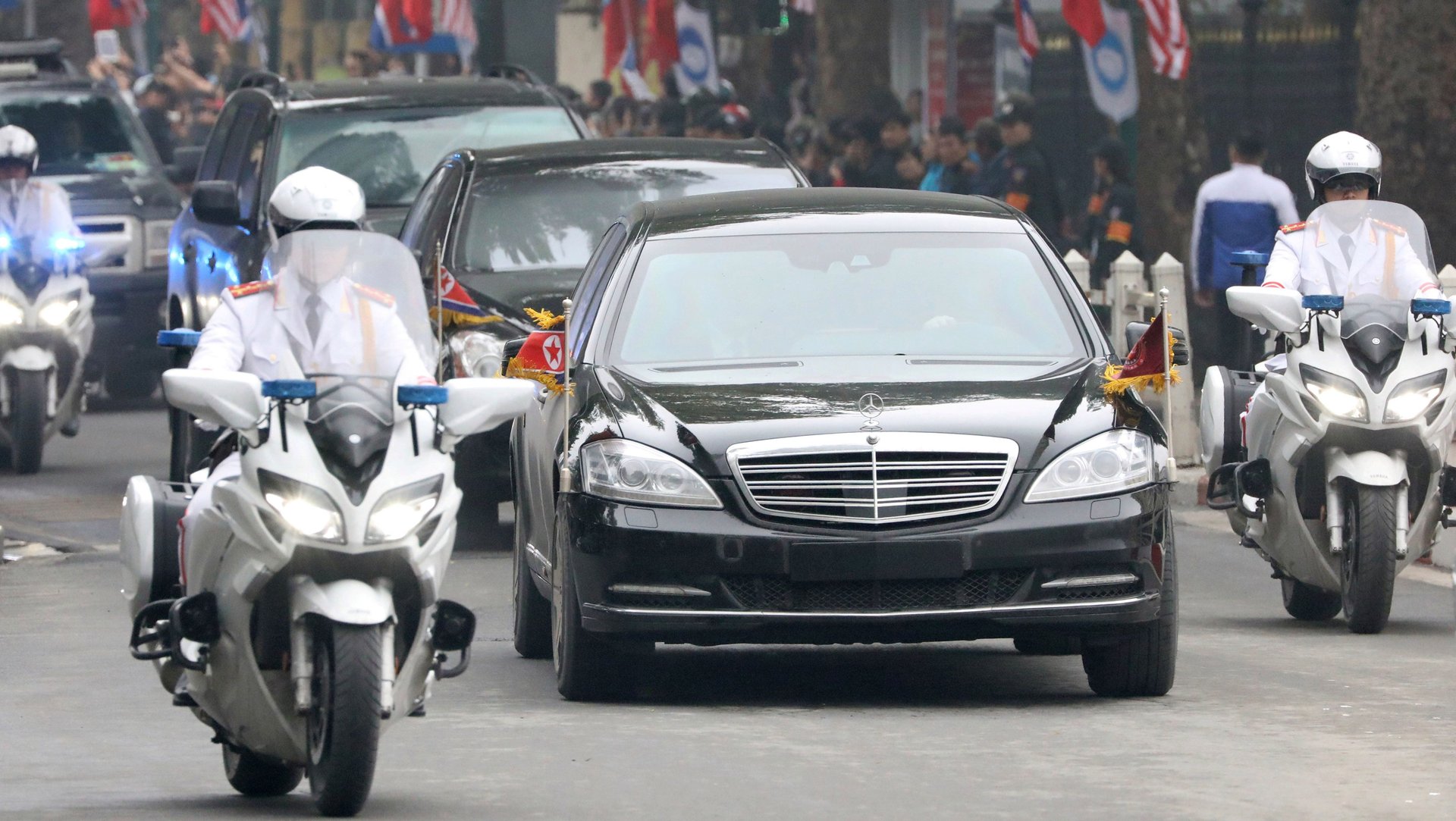The second Trump-Kim summit is another capitalism field trip for Kim Jong Un
When Kim Jong Un tours the Vietnamese capital of Hanoi this week, the North Korean leader will likely see a country worthy of emulation.


When Kim Jong Un tours the Vietnamese capital of Hanoi this week, the North Korean leader will likely see a country worthy of emulation.
Some 40 years ago, Vietnam was one of the poorest countries in the world, ravaged by a two-decade long war that ended in 1975. It was isolated from the rest of the world, with little access to markets and international financial support. But 1986 marked a turning point.
The country embarked on Doi Moi (“renovation”) reforms, gradually loosening the state’s grip on the economy through deregulation and opening up to foreign investment and trade. In the three decades since, Vietnam has experienced an economic miracle. Gross domestic product per capita is now 10 times what it was before reforms started, and its economy has become one of the fastest growing in the world. Through it all, the ruling Communist Party has managed to retain a tight hold on power, even as its citizens zip around using ride-hailing apps, embrace mobile cashless payments, and log on to Facebook in the millions.
The US, for its part, is keen to see North Korea take a page from Vietnam’s book and achieve the same economic success.
“In light of the once-unimaginable prosperity and partnership we have with Vietnam today, I have a message for Chairman Kim Jong-un: President Trump believes your country can replicate this path,” secretary of state Mike Pompeo said on a trip to Vietnam last summer. “It’s yours if you’ll seize the moment. The miracle could be yours; it can be your miracle in North Korea as well.”
In many ways, Kim’s visit to Vietnam this week will be like his trip to Singapore last summer. While Trump downplayed expectations regarding progress on denuclearization in recent days, US officials appear to be working from the idea that a state that’s integrated into the world economy will be less likely to want to lob missiles at other nations.
At the first Trump-Kim summit in June, the two leaders agreed to a vague, four-point, four-sentence-long plan to “establish new US-DPRK relations”; “build a lasting and stable peace regime”; “work towards complete denuclearization of the Korean Peninsula”; and repatriating the remains of Americans killed during the Korean War.
But the summit was also an opportunity for the North Korean delegation to savor the delights of Singaporean capitalism, with a lavish stay at the glitzy St. Regis hotel and takeaways from McDonald’s. The North Korean state media splashed on its front pages more than a dozen images of Kim on his stroll around Singapore, including his visit to the swanky Marina Bay Sands hotel and casino complex. On that trip, Trump waxed eloquent about the possibilities of North Korea’s beachfront real estate—and in fact Kim is working on a large beach resort on the country’s eastern coast, which could open this year.
While Singapore, as a global financial hub, may seem like an unlikely point of comparison for North Korea, the former North Korean leader Kim Il Sung is said to have urged his staff to work with and learn from Singapore. “It is a good country, even though it is an ally of the USA,” he is quoted as saying.
The same thinking may now apply to Vietnam, which enjoys close ties with the US and where 84 percent of the population views the US favorably, according to the Pew Research Center. And given the close historical ties between North Korea and Vietnam—Pyongyang directly assisted Vietnam during the Vietnam War—North Korea may see even more reason to follow the Southeast Asian country’s path.
Beyond economics, Vietnam’s history also offers some measure of reassurance for North Korea, said Benjamin Young, a fellow in the strategy and policy department at the US Naval War College.
Vietnam shows North Korea that “the US can make former enemies into allies and colleagues very easily,” said Young, speaking in his personal capacity. “I think North Korea needs to realize that we’re very open to making enemies into allies very quickly.”
Still, any hope that North Korea can easily transform itself into a booming, globalized economy is tempered by sociopolitical realties on the ground.
“The crucial difference is the scale and the degree of political and social control in North Korea,” said Benjamin Katzeff Silberstein, a nonresident fellow at the Washington, DC-based Stimson Center think tank. While North Korea has embarked on a process of marketization over the past two decades, information remains tightly controlled and citizens have no freedom of movement.
“The very idea that North Korea would simply follow a model of one country or another—that’s not how it works,” said Silberstein. Even if it were to reference an economic model like China’s or Vietnam’s, it would have to “tinker quite significantly with some of the facets of social control.”
For North Korea, the bottom line is safeguarding its one-party dictatorship, said Geetha Govindasamy, a senior lecturer in the department of East Asian studies at the University of Malaya, and who has written about Southeast Asia’s role in North Korea’s economic reforms.
“Whatever said and done, Kim will make sure that reforms will not endanger his grip on power,” she said.